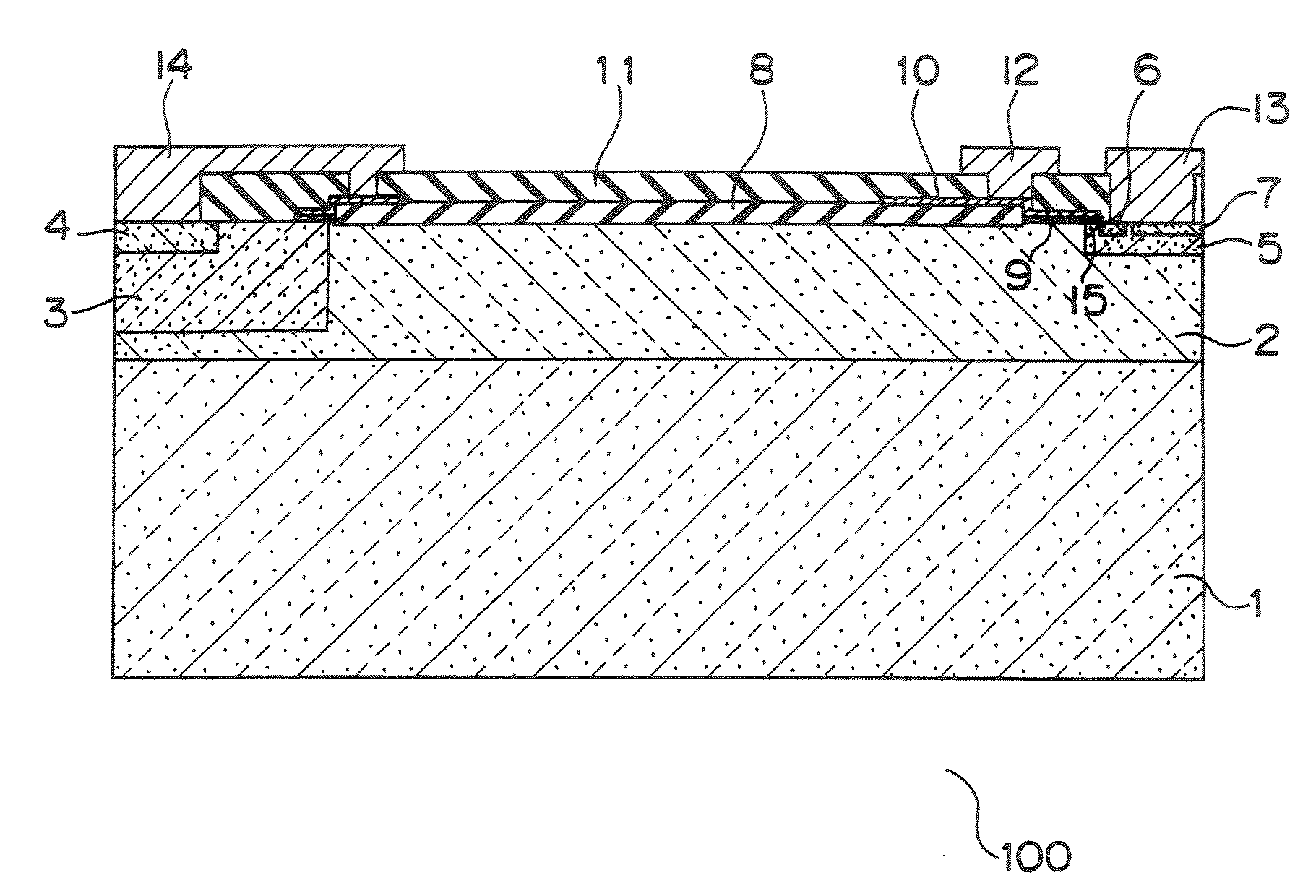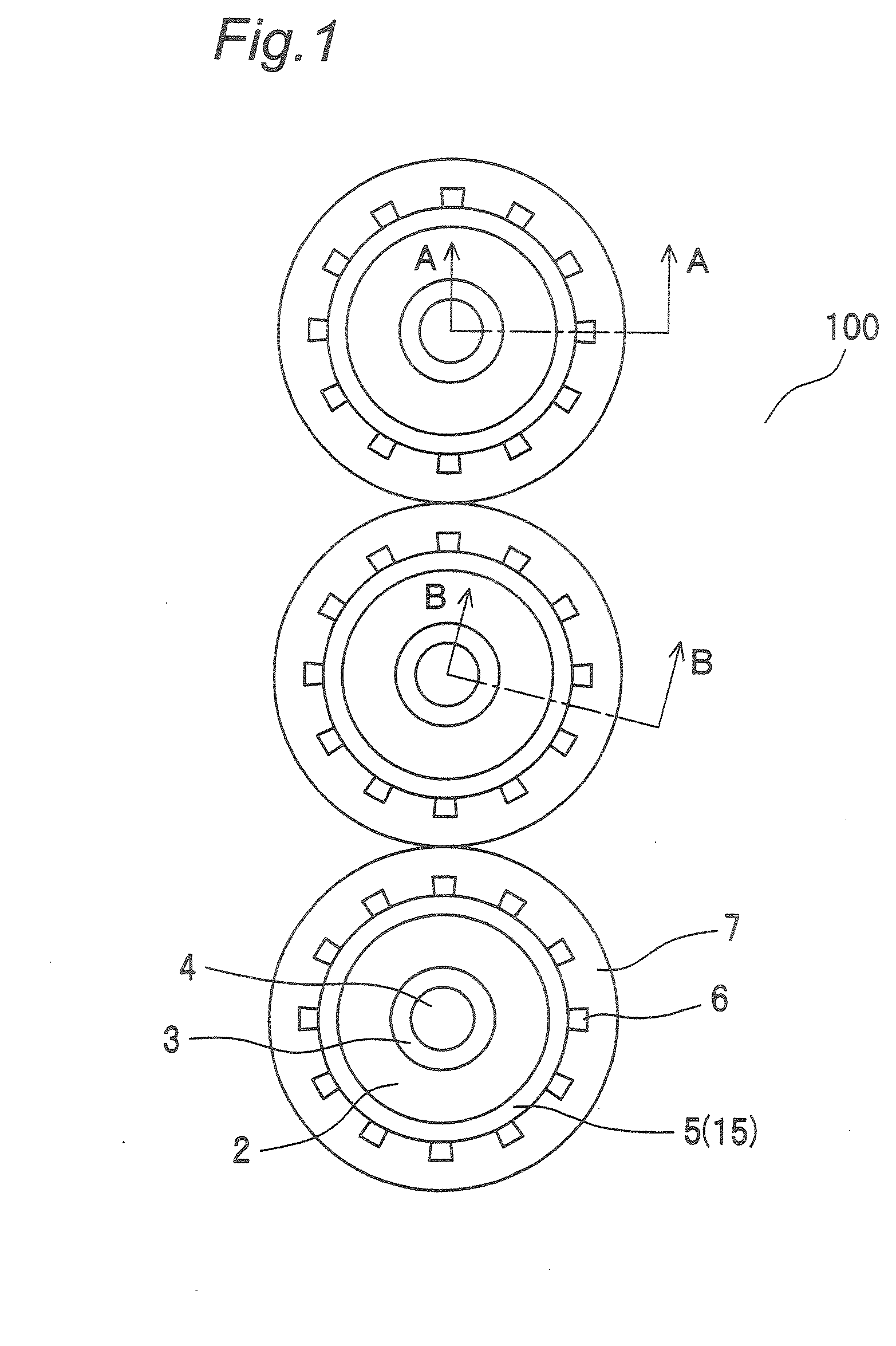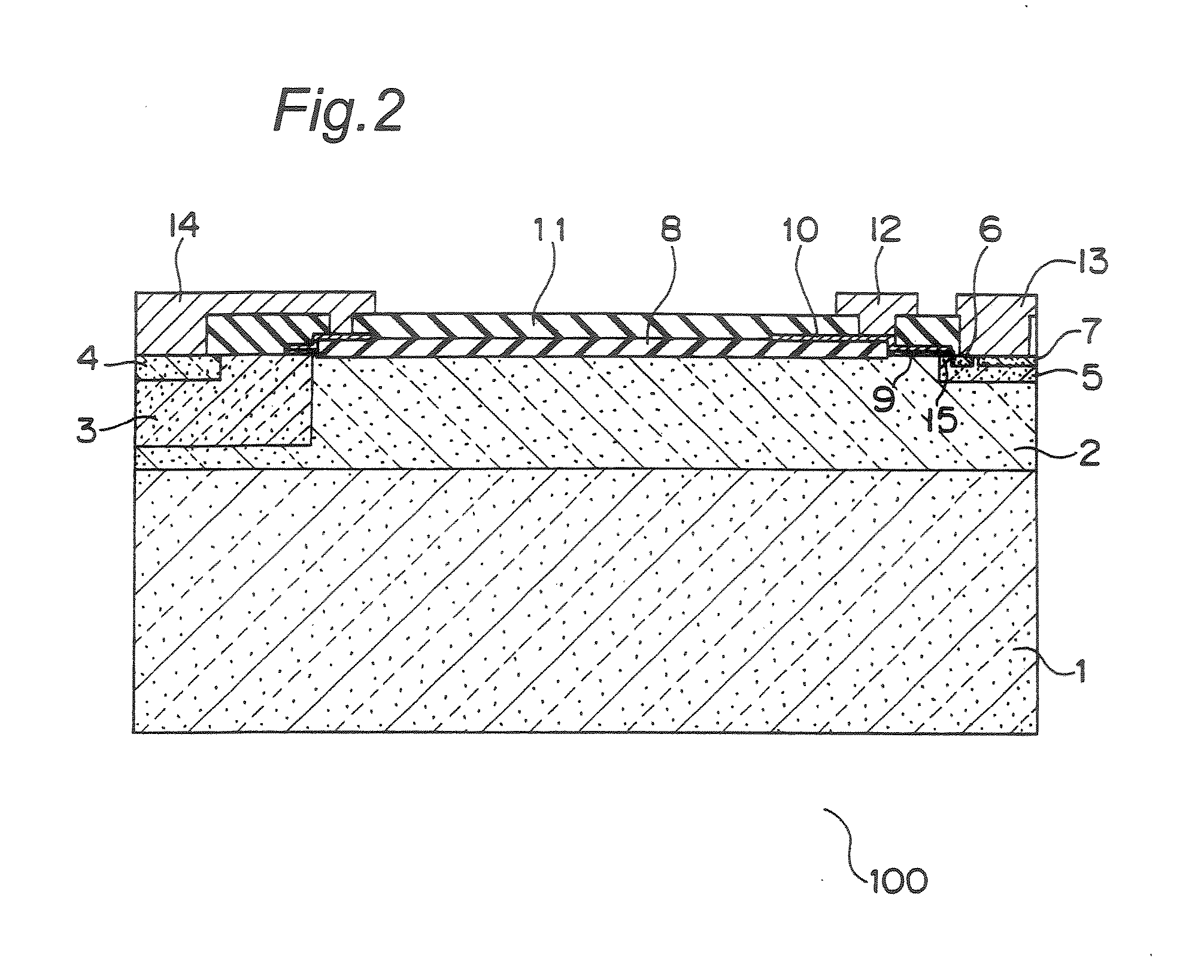Semiconductor device
a technology of semiconductors and semiconductors, applied in the field of high-voltage power semiconductor devices, can solve the problems of high resistance (vce/ice), insufficient ice, and slow switching speed, and achieve the effects of excellent collector-emitter current characteristics, high latch-up tolerance of parasitic thyristors, and short fall tim
- Summary
- Abstract
- Description
- Claims
- Application Information
AI Technical Summary
Benefits of technology
Problems solved by technology
Method used
Image
Examples
embodiment 1
[0053]FIG. 1 is a top view of a horizontal n-channel IGBT (Insulated Gate Bipolar Transistor) according to the Embodiment 1 of the present invention generally denoted at 100. FIG. 2 is a cross sectional view of FIG. 1 taken along the direction A-A, while FIG. 3 is a cross sectional view of FIG. 1 taken along the direction B-B.
[0054]As shown in FIG. 1, multiple circular unit IGBTs are disposed next to each other in the IGBT 100 (In FIG. 1, there are three unit IGBTs.). In each unit IGBT, a p-type collector layer 4 is located at the center, and an n-type buffer layer 3, an n− layer 2 and a p-type base layer 5 are disposed in an approximately concentric arrangement around the p-type collector layer 4. Disposed around the p-type base layer 5 are plural n-type emitter layers (unit emitter layers) 6 which are shaped like stripes in such a manner that the n-type emitter layers are apart from each other in an approximately concentric arrangement, and the p-type base layer 5 located between ...
embodiment 2
[0084]FIGS. 14 and 15 are cross sectional views of an IGBT according to the Embodiment 2 of the present invention generally denoted at 400, which respectively correspond to a cross sectional view taken along the direction A-A shown in FIG. 1 and a cross sectional view taken along the direction B-B shown in FIG. 1.
[0085]The IGBT 400 has an SOI structure (of the dielectric-isolated horizontal type) in which a buried oxide film 20 which may be a silicon oxide film for example is formed between the p-type substrate 1 and the n− layer 2. The structure is otherwise the same as that of the IGBT 100 (which is of the junction-isolated horizontal type) (See FIGS. 2 and 3.).
[0086]FIGS. 16 and 17 are cross sectional views of other IGBTs according to the Embodiment 2 of the present invention generally denoted at 500, which respectively correspond to a cross sectional view taken along the direction A-A shown in FIG. 5 and a cross sectional view taken along the direction B-B shown in FIG. 5.
[0087]...
embodiment 3
[0090]FIG. 18 is a cross sectional view of an IGBT according to the Embodiment 3 of the present invention generally denoted at 600, taken along the direction A-A shown in FIG. 1. In FIG. 18, the same reference numerals as those appearing in FIG. 2 denote the same or corresponding portions.
[0091]The IGBT shown in FIG. 18 includes, on the emitter side, a p− layer 30 which is formed narrower and deeper than the p-type base layer 5 but not deep enough to reach the p-type substrate 1 in such a manner that it contacts the bottom surface of the p-type base layer 5. The structure is otherwise the same as that of the IGBT 100 which is shown in FIG. 2.
[0092]FIG. 19 is a cross sectional view of another IGBT according to the Embodiment 3 of the present invention generally denoted at 600, also taken along the direction A-A shown in FIG. 1. The IGBT 700 has an SOI structure (of the dielectric-isolated horizontal type) which is the same as the structure of the IGBT 600 as it is modified to include...
PUM
 Login to View More
Login to View More Abstract
Description
Claims
Application Information
 Login to View More
Login to View More - R&D
- Intellectual Property
- Life Sciences
- Materials
- Tech Scout
- Unparalleled Data Quality
- Higher Quality Content
- 60% Fewer Hallucinations
Browse by: Latest US Patents, China's latest patents, Technical Efficacy Thesaurus, Application Domain, Technology Topic, Popular Technical Reports.
© 2025 PatSnap. All rights reserved.Legal|Privacy policy|Modern Slavery Act Transparency Statement|Sitemap|About US| Contact US: help@patsnap.com



